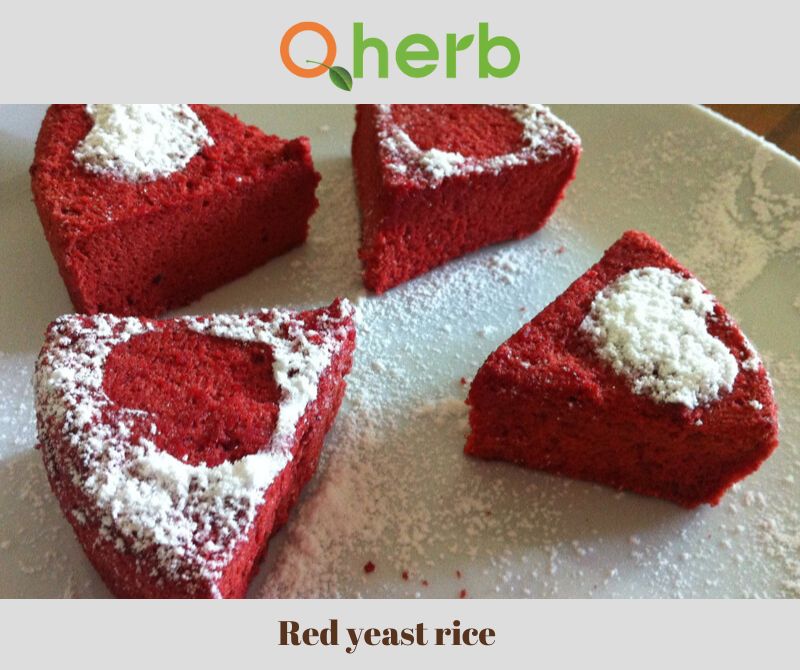Red yeast rice in the treatment of hypercholesterolemia
Red Rice Yeast was already used by the Chinese in the year 800 BC. The latter attributed to him the property of relieving indigestion and diarrhea, but also of promoting the good circulation of blood. Red rice yeast was exported to the United States of America in 1990 when Pharmanex launched the Cholestin product made from red yeast rice extract.
The product has quickly become a success thanks to its efficiency but also because of the price much more affordable than synthetic statins. The success was so dazzling that it was banned by the US Food and Drug Administration, which regarded the dietary supplement as an unapproved drug.
How is it made?
First of all, you should know that Red Rice Yeast is derived from a microscopic fungus that produces a red pigment on the rice.
In the first place it is necessary to cultivate this mushroom on the rice then to ferment it. It is during fermentation that a red pigment appears on the mushroom. Then you have to dry the rice and the mushroom. Finally, the rice and the mushroom are crushed to make powder. It is most often found in the form of food supplements.
Its benefits:
Yeast Red Rice is effective against bad cholesterol: its action is now recognized and proven by the European Food Safety Authority (EFSA)! Thus, several studies have shown that from 7.5 mg per day of monacolin K, the total cholesterol in the blood decreases significantly.
CHOLESTEROL REDUCING SUPPLEMENTS
It has been estimated that 42% of women and 34% of American men have high cholesterol levels. The usual medications are statins that lower total cholesterol (around 20%) and LDL cholesterol (28% reduction). However, due to the side effects of this medication, many patients seek alternative therapies that help them manage their hypercholesterolemia.
Different supplements and dietary supplements have been used to reduce blood cholesterol, alone or in combination. Among them we can mention the red rice yeast, the sugarcane policosanols and the artichoke leaf extracts given its potential LDL cholesterol lowering effect. Thus, in a double-blind, randomized study, 39 individuals with moderate hypercholesterolemia who did not receive any pharmacological treatment consumed these supplements, reducing LDL cholesterol by 21.4% and total cholesterol by 14.1%.
In a group of 18 hypercholesterolemic patients, the promotion of an adequate diet, the practice of exercise and the ingestion of a supplement containing red yeast of rice and phytosterols were promoted. In the sample analyzed, total cholesterol decreased by 19% and LDL-cholesterol by 33% after six weeks of use.
It should be noted that the LDL-cholesterol reduction figures are considerably higher than the 28% decrease indicated for the statins themselves according to a meta-analysis carried out in 1999 and published in the journal of the American Medical Association.
Mixtures of other supplements such as red yeast rice, chlorella, soy protein and licorice also seem to improve total cholesterol as well as LDL-cholesterol and triglycerides in subjects affected by metabolic syndrome. Also, in those subjects seems to normalize blood pressure.
Another supplement produced a statistically significant reduction in total cholesterol (20%), LDL-cholesterol (31%) and insulin resistance (10%) after supplementation with berberine, red yeast rice and policosanol in elderly patients (10). In this study, the authors point out the efficacy of treatment in patients who previously were intolerant to statins, as well as the safety in their use and good tolerance on the part of patients.
The results were largely coincident in another trial conducted with the same complement on 1,751 patients who were recruited in 248 Italian clinics. Thus, after a treatment with this product containing red yeast rice, policosanol and berberine was found: a reduction of 19.1% for total cholesterol, 23.5% for LDL-cholesterol, an increase of 11.6% for HDL-cholesterol and a 17.9% reduction for triglycerides.
CONCLUSION
Under medical supervision, modifications in lifestyle that include adequate diet, physical activity and the ingestion of red yeast rice supplements can be considered as adequate systems to promote cardiovascular health, reducing total cholesterol and LDL-cholesterol.



 Healthier Future
Healthier Future